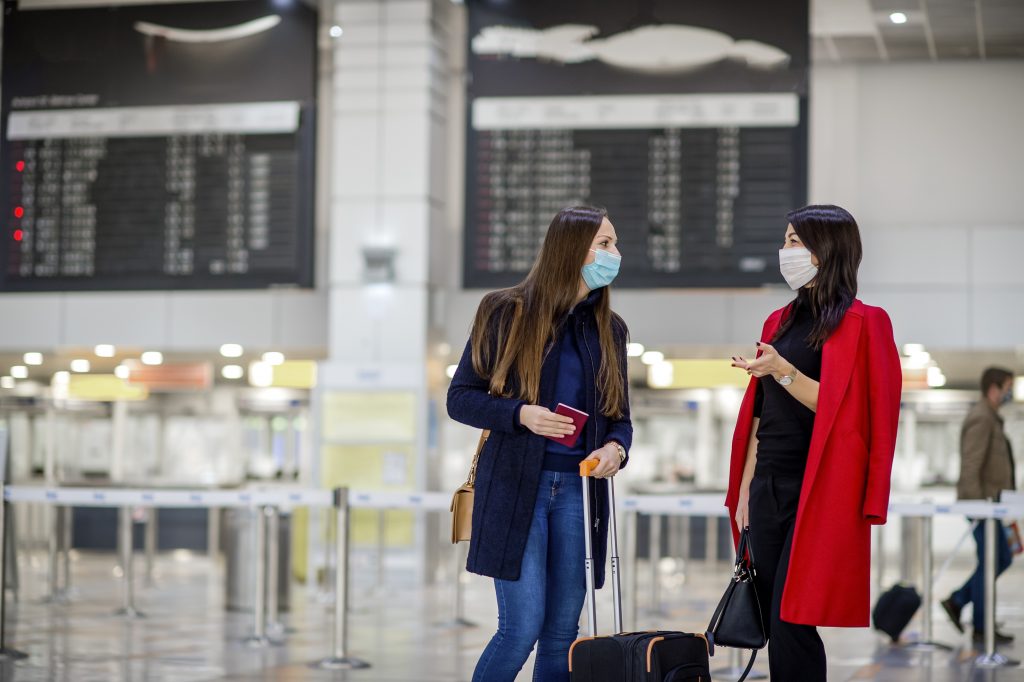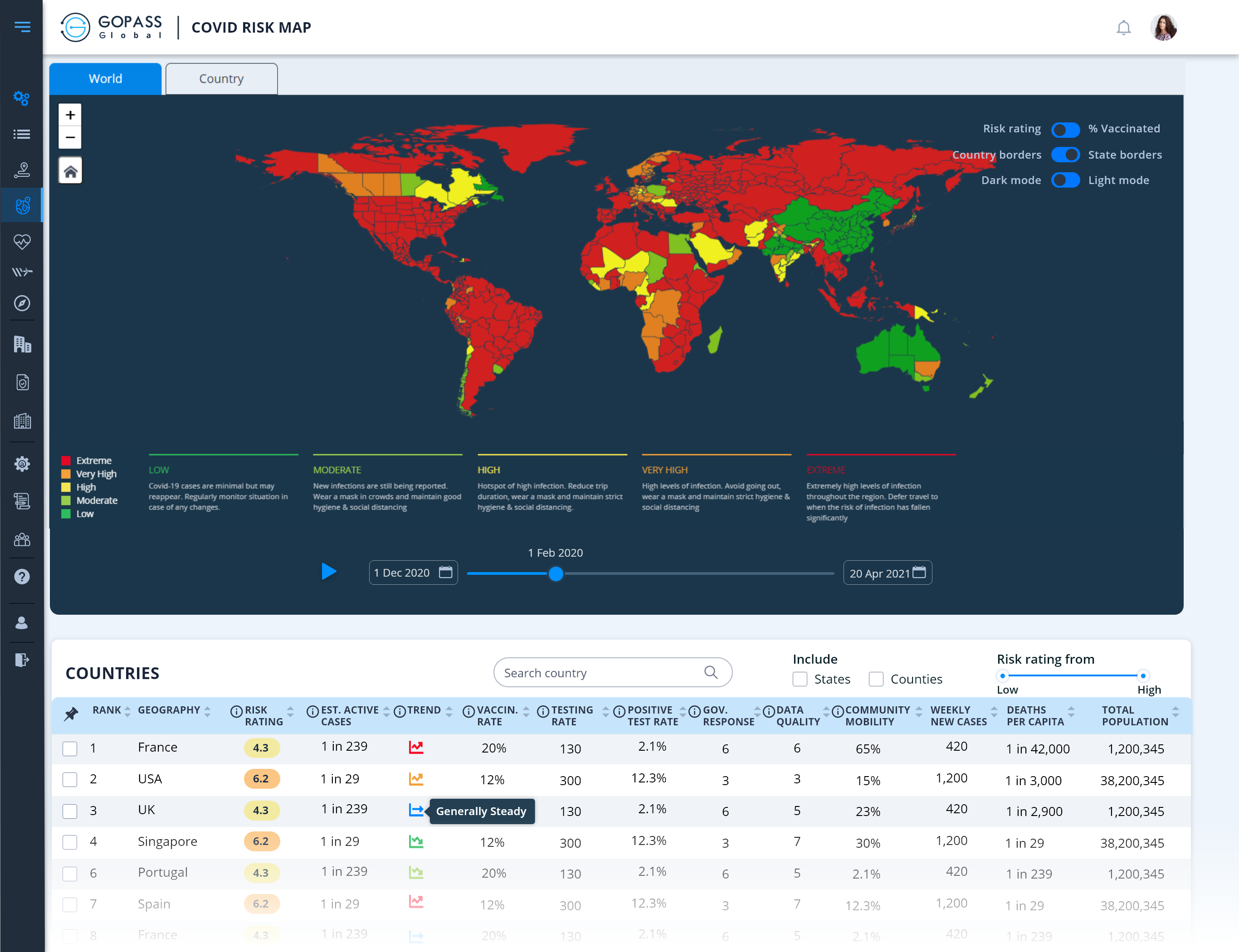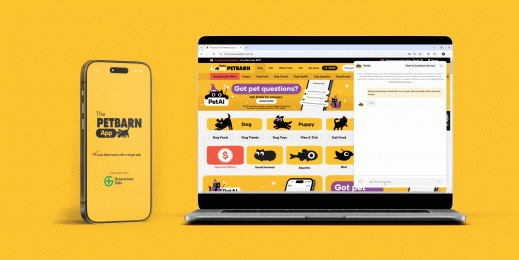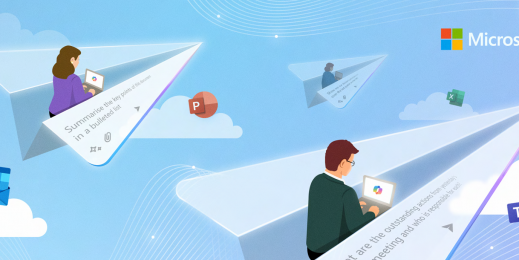
GOPASS Global leverages Microsoft data and AI platforms to make safe international travel a reality
Today Microsoft announced it has collaborated with GOPASS Global to jointly build an AI powered data analytics platform, the first of its kind to provide critical insights about safer travel for business and leisure travellers.
With Australia’s international borders set to reopen after almost two years of being closed to the world, Australians are looking forward to seeing friends, family, and the world once again. But with safety standards and regulations constantly changing around the globe, access to accurate information, in near real time, will be vital when planning an international trip.
GOPASS Global’s pre-travel risk management platform, which analyses and scores Covid-related travel risk, is intended to hit fast forward for all travellers, providing critical insights about safer interstate and international trips.
The organisation has constructed a data lake that takes in information from 35 different sources, covering 240 countries 3,900 airports, 732 airlines, and 260 aircraft.
It has also developed 37 separate risk models that interpret the data to provide an easy-to-understand assessment of the risk of a trip, accounting for everything from the final destination to the seat location on the plane.
GOPASS Global is the brainchild of a team of data analytics experts who were working at AlphaZetta Consulting when the pandemic unfurled. When many of the team were furloughed, AlphaZetta founder and CEO, Tony Ohlsson and Mark Radford, founder and director, started developing the idea of an intelligent platform that could help people feel safe to start travelling when the worst of the pandemic abated.
From those beginnings, the company has grown and has now signed international distribution agreements with organisations including Sabre, Global Travel Network, Lufthansa City Centre and Hickory Global Partners.
GOPASS Global’s cloud platform is 100 per cent Azure-based and uses a range of Azure services such as Azure API Management, Azure Active Directory, Azure App Services, Azure Cosmos DB and Azure Databases for MySQL Flexible Server.

The platform analyses both relatively static information such as the layout and management of different airplanes and continually updated information about Covid-19 infection rates and travel rules and regulations for countries and regions around the world.
GOPASS’s unique algorithms then score and interpret the data and provide the insights either as a dashboard direct to the customer, or as an API so that the data can be integrated with a travel agent’s or corporate travel-software system.
Mark Radford, GOPASS Global’s CEO, said: “Our platform takes a huge amount of fast-changing information into account to provide real time risk scores for pretty much any proposed trip.
“Corporations need to get their people back travelling, doing deals, building relationships, and they need to do it safely. We’re helping them do this easily and affordably. For leisure travellers, we remove the complexity of trawling through countless sources to check if it’s safe to go home, visit friends, or discover a new city.”
Radford also noted that GOPASS Global was ideally placed to help travel corporations implement many of the recommendations of the new travel risk management guideline, ISO 31030, published by the international standards body ISO on September 16.
GOPASS Global will continue leveraging Microsoft’s product stack to continuously innovate the platform. For example, although originally conceived as a Covid-19 related travel risk tool, the platform could be expanded to account for geopolitical or environmental risk.
Lizelle Hughes, director of SaaS and ISV partnerships at Microsoft Australia and New Zealand, said; “GOPASS Global is an example of the innovation, agility, and intelligent use of data and AI that is possible with Microsoft Azure. Mark, Tony, and the team have created an entirely new company and put seven products in market in less than 12 months, and the platform choice will be a key differentiator as the product’s use case expands in the decisions of organisations and individuals as international borders reopen.”
















